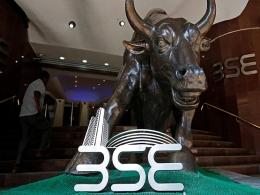The Reserve Bank of India unexpectedly cut its key deposit rate for the second time in three weeks on Friday to discourage banks for parking idle funds with it and push them toward lending to revive the flagging economy amid the coronavirus lockdown.
The RBI cut its reverse repo rate INRREP=ECI by 25 basis points (bps) to 3.75% with immediate effect, RBI Governor Shaktikanta Das said in a video conference. The rate had already been cut by 90 bps on March 27.
The central bank kept its benchmark repo rate INREPO=ECI unchanged at 4.40% after a 75 bps cut last month.
Since his last address on March 27, Das said that India’s economic and financial landscape has “deteriorated precipitously” in some areas.
Prime Minister Narendra Modi extended on Tuesday a lockdown of India’s 1.3 billion population till May 3 as the number of coronavirus cases went past 10,000 despite a three-week shutdown announced last month.
“The surplus liquidity in the banking system has risen significantly in the wake of government spending and the various liquidity enhancing measures undertaken by the RBI,” Das said.
“In order to encourage banks to deploy these surplus funds in investments and loans in productive sectors of the economy, it has been decided to reduce the fixed rate reverse repo rate,” he added.
Indian banks have been extremely wary of lending over the last few quarters as the economy has cooled and those fears have only increased in recent weeks as business activity collapses.
Banks have parked more than 6 trillion rupees ($78.44 billion) with the RBI under the reverse repo in recent days, highlighting the extent of surplus rupee funds in the system.
“It is doubtful whether this flow can be stemmed easily. Banks are not lending or investing because they fear that under the current conditions they may be adversely impacted if they employ the money for investments or lending,” said Joseph Thomas, head of research at Emkay Wealth Management.
The RBI also announced another round of targetted long-term repo operations and other regulatory measures for banks.
However, analysts believe much more help will be needed from the government to help tide over the crisis.
The government so far has only announced a $22 billion package targetted at the poor but refrained from any big bang measures.
“We think more targeted coordinated fiscal and monetary measures may be needed with increasing growth downside risks backed by depth and longevity of COVID-19,” said Madhavi Arora, lead economist with Edelweiss.







